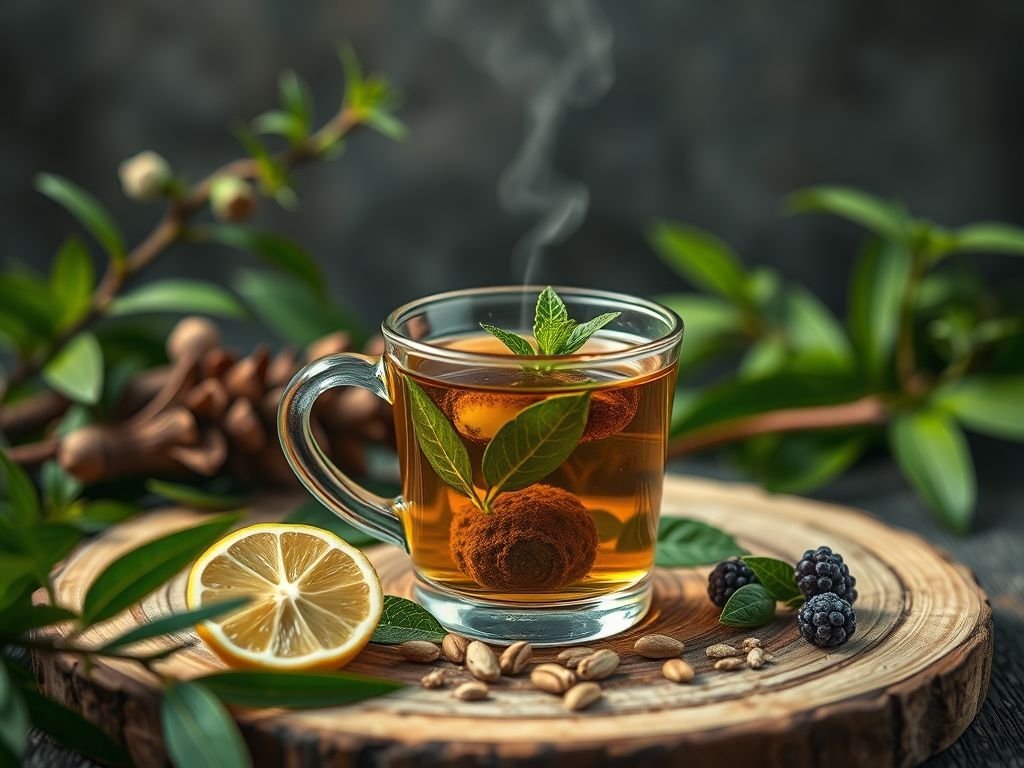Understanding Herbal Tea Recipes
Herbal tea recipes are concoctions made from various herbs, flowers, fruits, and spices, brewed to extract their flavors and beneficial properties. Unlike traditional teas made from the Camellia sinensis plant, herbal teas are caffeine-free and come with a myriad of health benefits. They are popularly consumed for their soothing effects, potential health benefits, and aromatic qualities.
In the realm of natural health and herbal medicine, herbal teas have gained immense popularity among adults seeking alternatives for weight loss, anxiety relief, and overall wellness. The beauty of herbal tea recipes lies in their versatility; they can be tailored to suit individual tastes and health needs, making them a go-to beverage for many.
Health Benefits of Herbal Tea
Herbal teas are not just flavorful beverages; they also offer a plethora of health benefits. Here are some key advantages:
- Weight Loss: Certain herbs like green tea and peppermint can boost metabolism and aid in fat burning.
- Anxiety Relief: Chamomile and lavender teas are well-known for their calming effects, helping to alleviate stress and anxiety.
- Improved Digestion: Ginger and peppermint teas can soothe digestive issues, making them great for post-meal consumption.
- Anti-Inflammatory Properties: Herbs like turmeric and ginger have anti-inflammatory effects, which can help in reducing chronic pain.
Popular Herbal Tea Recipes
Exploring herbal tea recipes can be a delightful experience. Here are a few popular recipes that cater to various health needs:
1. Calming Chamomile Tea
This simple recipe is perfect for winding down after a long day:
- 1 cup of water
- 1 tablespoon dried chamomile flowers
- Honey or lemon to taste
Boil the water, add chamomile, and steep for 5 minutes. Strain and enjoy!
2. Energizing Peppermint Tea
Perfect for a refreshing pick-me-up:
- 1 cup of water
- 1 tablespoon fresh peppermint leaves
- Optional: a slice of lime
Similar to chamomile, boil water, add peppermint, and steep for 5 minutes. Add lime for a zesty flavor.
3. Detoxifying Ginger Tea
Great for digestion and detox:
- 1 cup of water
- 1-inch piece of fresh ginger, sliced
- 1 tablespoon honey (optional)
Boil the water, add ginger slices, and simmer for 10 minutes. Sweeten with honey if desired.
4. Turmeric Anti-Inflammatory Tea
Ideal for reducing inflammation:
- 1 cup of water
- 1 teaspoon turmeric powder
- 1 tablespoon honey
- 1 pinch of black pepper (enhances absorption)
Boil water, mix in turmeric, honey, and black pepper. Stir well and enjoy the health benefits!
How to Brew Herbal Tea
Brewing herbal tea involves a few simple steps that can enhance the flavor and health benefits:
- Choose Your Herbs: Select the herbs based on your health needs and flavor preferences.
- Measure: Use approximately 1 tablespoon of dried herbs or 2 tablespoons of fresh herbs per cup of water.
- Heat Water: Bring water to a boil; different herbs may require different temperatures.
- Steep: Pour hot water over the herbs and let steep for 5-10 minutes, depending on the desired strength.
- Strain and Serve: Strain the herbs out and serve your tea hot or iced.
Applications in Daily Life
Incorporating herbal tea into your daily routine can be simple and enjoyable. Here are some practical applications:
- Morning Routine: Start your day with a cup of energizing peppermint or ginger tea to kickstart your metabolism.
- Afternoon Break: Sip on chamomile or lemon balm tea during your break to reduce stress and enhance focus.
- Post-Meal Aid: Enjoy a digestive herbal tea like peppermint or ginger after meals to soothe your stomach.
- Bedtime Ritual: Wind down with chamomile or valerian root tea to promote better sleep.
Understanding herbal tea recipes ties into various related concepts in herbal medicine:
- Herbal Infusions: A technique similar to teas but typically involves steeping herbs for a longer time to extract maximum benefits.
- Tisanes: Another term for herbal teas, referring to any infusion made from herbal materials.
- Essential Oils: Often used in conjunction with herbal teas for enhanced therapeutic benefits.
- Holistic Health: The broader approach that includes using herbal remedies and lifestyle changes for overall wellness.
Conclusion
Herbal tea recipes serve as a delightful and healthful addition to anyone's routine. Their numerous benefits—from aiding in weight loss to relieving anxiety—make them a valuable resource in the quest for natural health. By understanding how to brew these teas and incorporating them into daily life, individuals can enjoy both the flavor and the wellness benefits that come with them. So grab your favorite herbs, brew a cup, and experience the joy of herbal teas in your life!
Reflect: What herbal tea will you try first? Experiment with different ingredients to find your perfect blend!

